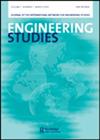Exploring the Social and Cultural Dimensions of Learning for Recent Engineering Graduates during the School-to-Work Transition
IF 1.3
3区 工程技术
Q2 EDUCATION, SCIENTIFIC DISCIPLINES
引用次数: 10
Abstract
The school-to-work transition is a challenging period for engineering graduates. In contrast to most engineering curricula, workplace learning involves organizations, people, cultures, and a range of non-technical and technical elements. Where many researchers have focused on skills gaps across school and work, we focus here on contexts gaps, or shifts in learning processes across organizational settings. Using reflective journals and semi-structured interviews, we explored significant learning events during recent engineering graduates’ school-to-work transition. Using theories of organizational socialization, we characterize significant experiences related to social and cultural dimensions of participants’ new organizational roles. Newcomers in this study reported learning related to, for example, forming relationships, learning local language, interacting with power structures, and other features of their organizations. Results offer points of contrast in which we compare learning processes and highight critical differences across school and workplace settings. Findings suggest that engineering educators should consider the broad spectrum of learning that takes place as graduates transition to their new professional roles. By better understanding the role of context in organizational learning, educators can more effectively prepare recent graduates for contemporary practice and develop a deeper appreciation for the interconnectedness of the social, cultural, and technical dimensions of engineering work.在学校到工作的过渡中,探索工程学毕业生学习的社会和文化维度
对于工科毕业生来说,从学校到工作的过渡是一个充满挑战的时期。与大多数工程课程不同,工作场所学习涉及组织、人员、文化以及一系列非技术和技术元素。许多研究人员关注的是学校和工作中的技能差距,我们在这里关注的是背景差距,或组织环境中学习过程的转变。利用反思性期刊和半结构化访谈,我们探讨了工程毕业生从学校到工作过渡期间的重大学习事件。利用组织社会化理论,我们描述了参与者新组织角色的社会和文化维度相关的重要经验。这项研究中的新人报告了与建立关系、学习当地语言、与权力结构互动以及组织的其他特征有关的学习。结果提供了我们比较学习过程的对比点,并突出了学校和工作场所环境中的关键差异。研究结果表明,工程教育工作者应该考虑毕业生向新的专业角色过渡时所发生的广泛学习。通过更好地理解背景在组织学习中的作用,教育工作者可以更有效地为应届毕业生进行当代实践做好准备,并对工程工作的社会、文化和技术层面的相互联系有更深的认识。
本文章由计算机程序翻译,如有差异,请以英文原文为准。
求助全文
约1分钟内获得全文
求助全文
来源期刊

Engineering Studies
ENGINEERING, MULTIDISCIPLINARY-HISTORY & PHILOSOPHY OF SCIENCE
CiteScore
3.60
自引率
17.60%
发文量
12
审稿时长
>12 weeks
期刊介绍:
Engineering Studies is an interdisciplinary, international journal devoted to the scholarly study of engineers and engineering. Its mission is threefold:
1. to advance critical analysis in historical, social, cultural, political, philosophical, rhetorical, and organizational studies of engineers and engineering;
2. to help build and serve diverse communities of researchers interested in engineering studies;
3. to link scholarly work in engineering studies with broader discussions and debates about engineering education, research, practice, policy, and representation.
The editors of Engineering Studies are interested in papers that consider the following questions:
• How does this paper enhance critical understanding of engineers or engineering?
• What are the relationships among the technical and nontechnical dimensions of engineering practices, and how do these relationships change over time and from place to place?
 求助内容:
求助内容: 应助结果提醒方式:
应助结果提醒方式:


